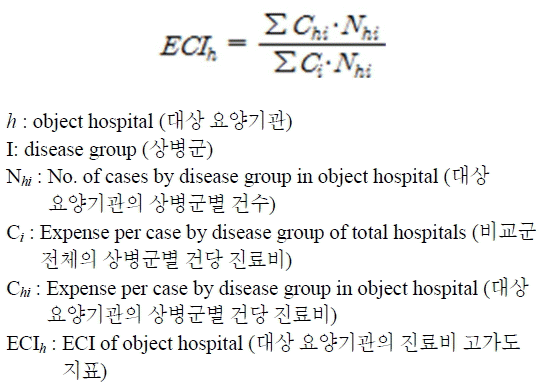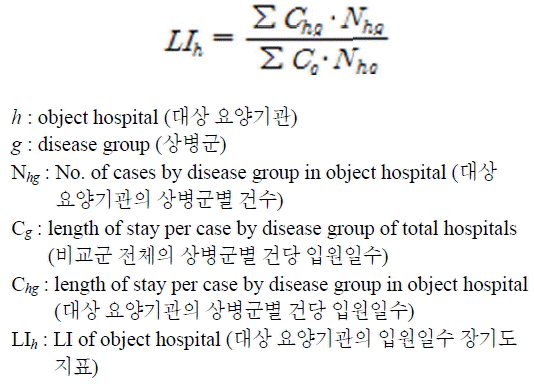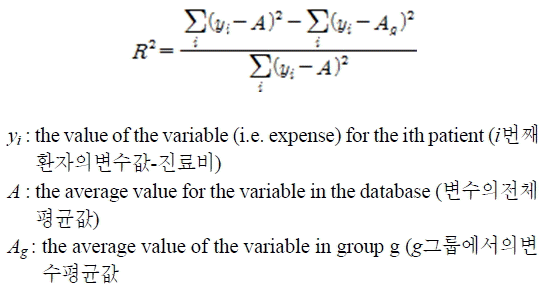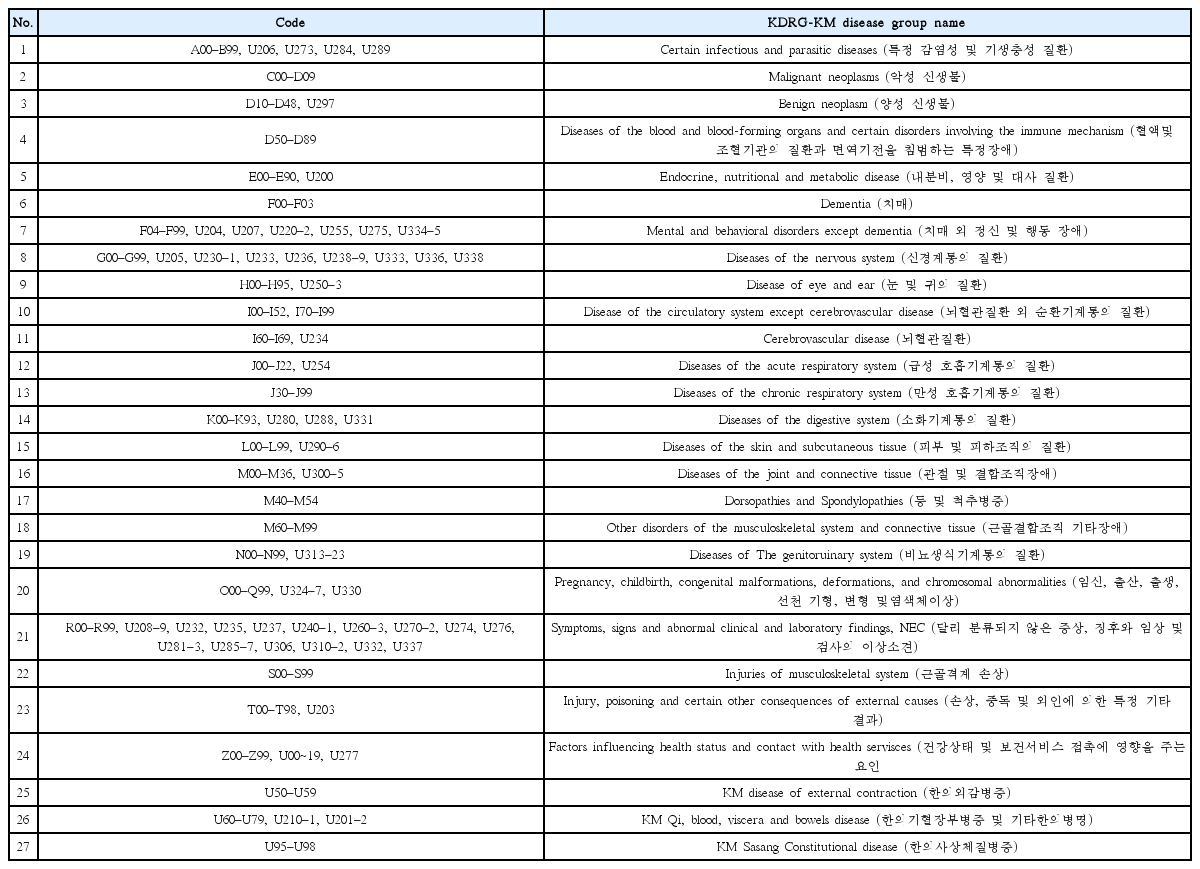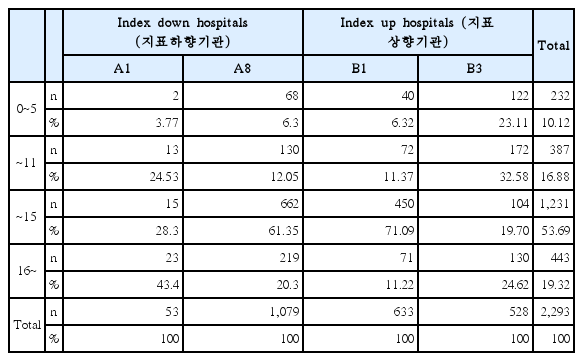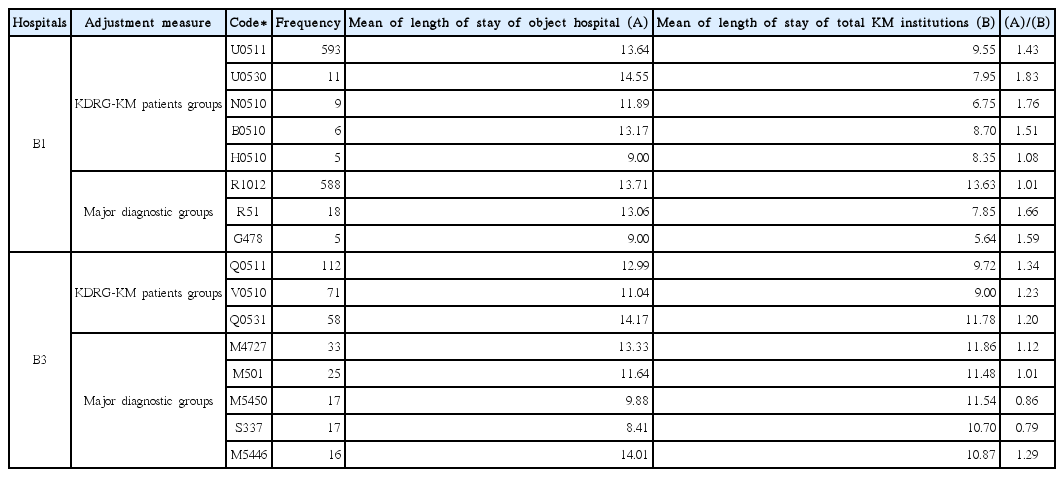Assessment of Validity of Inpatient Classification System in Korean Medicine (KDRG-KM)
Article information
Abstract
Objectives
This study aimed to assess the validity of ‘Korean Diagnosis Related Groups-Korean Medicine (KDRG-KM)’which was developed by Health Insurance Review & Assessment Service (HIRA) in 2013
Methods
Among inpatient EDI claim data issued by hospitals and clinics in 2012, the data which included Korean medicine procedures were selected and analyzed. We selected control targets in the Korean medicine hospitals which had longer Episodes-Costliness index (ECI) and Lengthiness index (LI) than average of total Korean medicine hospitals, and compared the results of selection between the major diagnosis-based patient classification system and the KDRG-KM system. Finally, the explanation power (R2) and coefficient of variation (CV) of the KDRG-KM system using practice expenses were calculated.
Results
The numbers of control target in Korean medicine hospitals changed from 36 to 32 when patient grouping adjustment method was changed from major diagnosis to KDRG-KM. For expenses of all outpatient claim data on Korean medicine, explanation power of KDRG-KM system was 66.48% after excluding outliers. CVs of expenses of patient groups in Korean medicine hospitals were gathered from under 70% to under 90%, and those in long-term care hospitals mostly belonged under 70%.
Conclusions
The validity of KDRG-KM system was assured in terms of explanation power. By adapting KDRG-KM system, fairness of control targets selection for costliness management in Korean medicine hospitals can be enhanced.
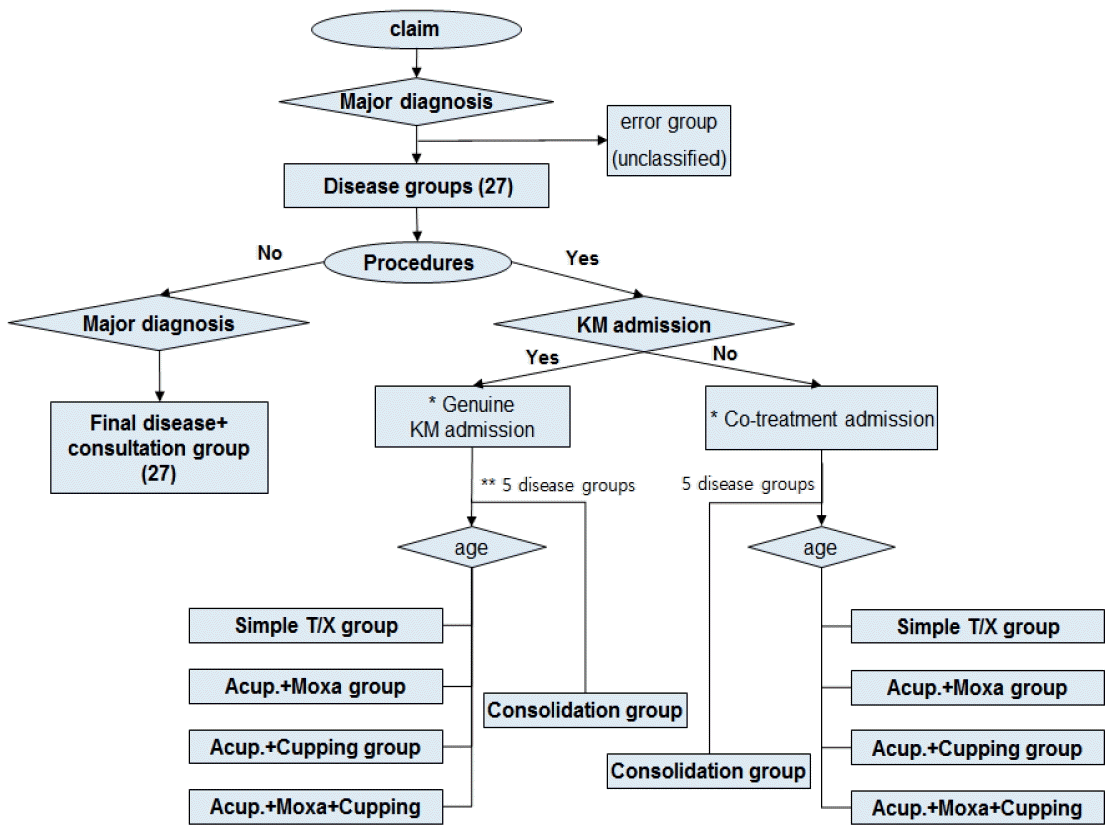
KDRG-KM Classification Flow
* Genuine KM Admission: Korean Medicine (KM) hospital admission except Co-treatment admission, Co-treatment Admission: KM treatment claim during Western Medicine hospital admission
** 5 disease groups: ‘Diseases of the blood and blood-forming organs’, ‘Pregnancy, childbirth, congenital malformations’, ‘health status and contact with health services’, ‘KM disease of external contraction’, ‘KM Sasang Constitutional disease’
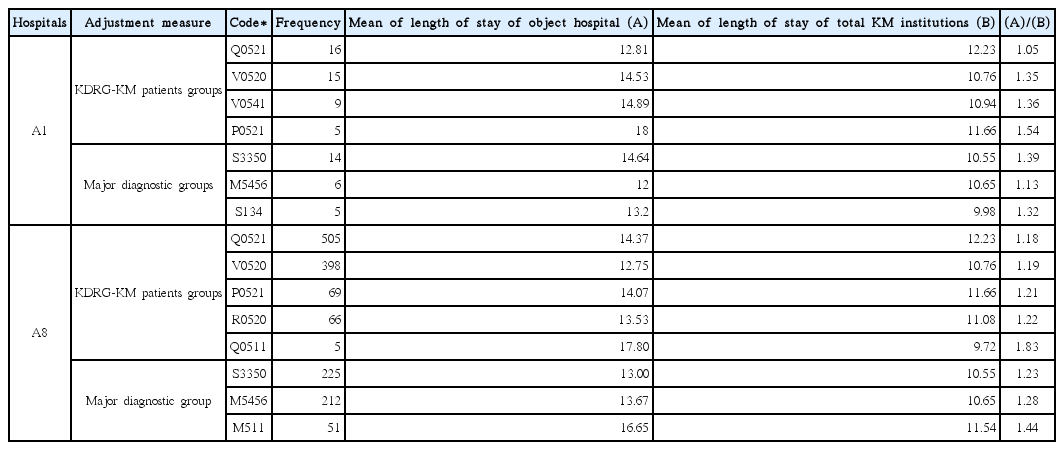
Lengths of Stay of Frequent KDRG-KM Patients Groups and Major Diagnostic Groups in A1 and A8 Hospitals (unit: day, case)
